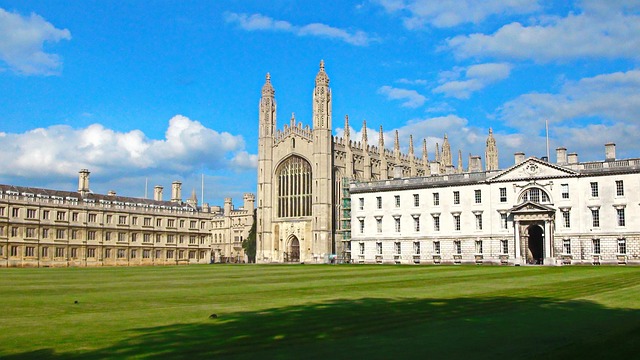If you’re looking for the top universities for law UK, you’ll find a range of prestigious institutions known for their academic excellence, cutting-edge research, and strong career prospects. Choosing the right law school is a crucial step for students aspiring to become a lawyer, as it can directly shape both legal education and future career opportunities. Whether you’re aiming for a prestigious Russell Group institution or a law school with specialized programs, understanding the rankings and key differences will help you make an informed decision. In this guide, we compare and rank the best UK universities for law to assist you in finding the perfect fit.
Ranking of Top Universities for Law UK
To help identify the best unis for law UK, Times Higher Education, The Complete Student Guide, and The Guardian each publish law school rankings UK annually. Below, we present 10 top UK universities for law from each of these respected rankings.
| Best Universities for Law in UK — The Guardian (2025) | |||
|---|---|---|---|
| Rank | University | City | Guardian score/100 |
| 1 | University of Cambridge | Cambridge | 100 |
| 2 | University College London (UCL) | London | 99 |
| 3 | University of Oxford | Oxford | 97.6 |
| 4 | London School of Economics and Political Science | London | 97.3 |
| 5 | Solent University | Southampton | 88.8 |
| 6 | Durham University | Durham | 85.8 |
| 7 | King’s College London | London | 85.2 |
| 8 | University of Glasgow | Glasgow | 84.2 |
| 9 | Leeds Trinity University | Leeds | 80.6 |
| 10 | University of Edinburgh | Edinburgh | 79.8 |
| Top Universities for Law UK — Complete University Guide (2025) | |||||
|---|---|---|---|---|---|
| Rank | University | City | Student satisfaction | Research quality | Graduate prospects |
| 1 | University of Cambridge | Cambridge | n/a | 84% | 94% |
| 2 | University College London (UCL) | London | 77% | 91% | 93% |
| 3 | London School of Economics and Political Science | London | 78% | 85% | 84% |
| 4 | University of Oxford | Oxford | 76% | 84% | 92% |
| 5 | King’s College London | London | 77% | 83% | 91% |
| 6 | Durham University | Durham | 76% | 85% | 88% |
| 7 | University of Glasgow | Glasgow | 76% | 87% | 88% |
| 8 | University of Bristol | Bristol | 73% | 88% | 86% |
| 9 | University of Edinburgh | Edinburgh | 73% | 86% | 89% |
| 10 | University of Nottingham | Nottingham | 76% | 82% | 83% |
| Law Universities Ranking UK — Times Higher Education (2025) | |||
|---|---|---|---|
| UK Law Rank | Worldwide Law Rank | University | City |
| 1 | 4 | University of Cambridge | Cambridge |
| 2 | 7 | University of Oxford | Oxford |
| 3 | 10 | University College London (UCL) | London |
| 4 | 13 | London School of Economics and Political Science | London |
| 5 | 16 | University of Edinburgh | Edinburgh |
| 6 | 27 | King’s College London | London |
| 7 | 44 | University of Glasgow | Glasgow |
| 8 | 46 | Queen Mary University of London | London |
| 9 | 55 | Durham University | Durham |
| 10 | 56 | University of Surrey | Guildford |
University of Oxford, University of Cambridge, King’s College London, the London School of Economics and Political Science, University College London, the University of Glasgow, the University of Edinburgh, and Durham University consistently all secure top 10 positions across the three rankings. Their continued excellence performance reaffirms their status as some of the best unis for law in England, showcasing their esteemed reputation and exceptional teaching quality in the field of law.
Best Universities for Law in UK
1. University of Cambridge

University of Cambridge has been ranked as the best unis for law UK by the Times Higher Education rankings for 2025. With a legacy of legal education dating back to the 13th century, Cambridge has consistently upheld world-class standards in both teaching and research. Its distinguished faculty members possess comprehensive expertise across various aspects of law and legal history in common law jurisdictions.
In addition to PhD programs, Cambridge offers two postgraduate law degrees: the Master of Laws (LLM) and the Master of Corporate Law (MCL). The LLM program is a nine-month course that begins in early October and concludes in June of the following year. It attracts top-tier students from both common law and civil law backgrounds. Each year, the program receives approximately 1,200 applications, with only 160 to 180 students from 40 to 50 countries ultimately securing admission.
- Entry Requirements for LLM: A first-class bachelor’s degree in law from a UK university or an equivalent qualification from an overseas institution;
- Language Requirements: IELTS 7.5 (with no component below 7.0), or TOEFL total score of 100 (with no component below 25).
2. University of Oxford
University of Oxford is consistently ranked among the top universities for law UK, renowned for its Faculty of Law, one of the oldest and most prestigious law schools in the country. With a history of over 800 years, Faculty of Law in Oxford has played a pivotal role in shaping legal education and research. One of its key features is the tutorial system, a distinctive teaching approach shared across Oxford colleges. Under this system, tutors — who are researchers themselves — independently select two to four students for personalized guidance, helping them develop critical thinking, problem-solving skills, and adaptability. In addition to a well-structured curriculum that includes core and elective courses aimed at enhancing both academic analysis and practical application, Oxford’s strong alumni network provides students with valuable opportunities to connect directly with experienced professionals in law and finance.
- Entry Requirements for LLM: A-levels: AAA; Advanced Highers: AA/AAB; IB: 38 (including core points) with at least 666 at HL.
- Language Requirements: IELTS 7.0 (with no component below 6.5) or TOEFL 100 (with no component below 20);
3. University College London
Faculty of Law at University College London is considered one of the best universities for law in the UK, renowned for its excellence in UK law education. Its faculty members are top researchers and distinguished scholars in various fields, possessing not only deep legal knowledge but also bring extensive practical experience. Additionally, UCL’s main campus is located in the heart of London, offering students exceptional opportunities to engage with legal professionals and elites. UCL’s law program was once ranked first in the UK in the RAE (Research Assessment Exercise) evaluation conducted by the UK government.
- Entry Requirements for LLM: A good 2.1 with evidence of 1st class ability’ (or equivalent in other jurisdictions), and must provide evidence in their application of motivation, reasoning, analytical ability, and communication skills;
- Language Requirements: IELTS 7.5 (with no component below 7.0) or TOEFL 100 (Reading >=27, Speaking >=23, other components >=30);
4. London School of Economics and Political Science
London School of Economics and Political Science stands out as one of the top UK universities for law, with an international reputation for the quality of its teaching and legal research. The law school adopts a small group teaching model, with courses led by distinguished scholars from both the UK and internationally. It offers a wide range of subjects, including arbitration, human rights, international law, corporate law, commercial law, and financial law. Students have the option to either take a general course or focus on a specific area of specialization.
The LLM program in LSE does not require interviews, placing greater emphasis on the quality of written application materials. It also favors applicants with strong professional backgrounds, particularly those from law schools in China or other regions with similar academic traditions. Due to the highly competitive nature of admissions, applicants without a formal legal education must showcase substantial professional or academic experience in law-related fields to be considered for admission.
- Entry Requirements for LLM: A very good undergraduate degree in law, LLB or equivalent, (for example, a first or very high upper second in the UK LLB or equivalent);
- Language Requirements: IELTS 7.5 (with no less than 7.0 in Listening and Writing, no less than 6.5 in Reading, and no less than 6.0 in Speaking); or TOEFL 109 (Writing >=27, Listening >=24, Reading and Speaking >=22);
5. University of Edinburgh
As one of the best universities for law in UK, Edinburgh Law School at the University of Edinburgh is renowned globally for its diverse teaching and research in law. Situated in the historic Old College in the heart of Edinburgh, it is just minutes away from both the Law Courts and Scotland’s Parliament. Since its establishment in 1707, Edinburgh Law School has remained committed to offering students a well-rounded, high-quality legal education. The school offers a wide range of courses, including commercial law, corporate law, criminal law, criminology, human rights law, intellectual property law, international law, economic law, medical law and ethics, and financial law. Additionally, the LLM program at Edinburgh Law School follows a small-group teaching model, allowing tutors to offer personalized attention to each student.
- Entry Requirements for LLM: A minimum UK 2:1 honors degree, or its international equivalent;
- Language Requirements: IELTS 7.5 (with no less than 7.0 in Listening and Writing, no less than 6.5 in Reading, and no less than 6.0 in Speaking); or TOEFL 109 (Writing >=27, Listening >=24, Reading and Speaking >=22);
6. King’ College London

Among the top unis for law UK, the Dickson Poon School of Law at King’s College London Strand Campus stands out. Established in 1831, it is one of the UK’s oldest law schools and has been a pivotal part of King’s College London for nearly two centuries. The school’s research and teaching address some of the most urgent contemporary issues, including equality and human rights, the legal impacts of climate change, globalization, international relations, trade, competition, and global finance. The LLM program at King’s College London is internationally acclaimed and recognized across major legal disciplines worldwide. Students can choose from nine specialized tracks, including LLM in Competition Law, LLM in European Law, and LLM in Intellectual Property & Information Law, among others.
- Entry Requirements for LLM: A minimum high 2:1 undergraduate Bachelor’s (honors) degree with a final mark of at least 65% or above;
- Language Requirements: IELTS 7.0 (with no component below 6.5); or TOEFL 100 (Reading & Listening & Speaking >=23, Writing >=25);
7. University of Glasgow
Ranked 7th in the Times Higher Education 2025 rankings for the best law schools in UK, the School of Law at the University of Glasgow is the largest and oldest law school in Scotland and one of the largest legal research centers in the UK. As one of the four founding schools established when the university was founded in 1451, the Law School has a rich legacy of academic excellence. It is renowned for its robust teaching and research programs, and maintains strong, long-standing partnerships with both local and international judicial institutions. Particularly distinguished for its expertise in traditional legal studies, the school is also recognized as a leading center for legal research in international finance and trade, ranking among the top institutions in Europe.
- Entry Requirements for LLM: A 2:1 Honors degree or non-UK equivalent in law or other subject with at least 50% of the credits in law;
- Language Requirements: IELTS 7.0 (with no component below 6.5); or TOEFL 94 (Reading >=19, Listening >=20, Speaking >=20, Writing >=24);
8. Queen Mary University of London
The School of Law at Queen Mary University of London Lincoln’s Inn Fields Campus consistently has earned a strong reputation as one of the best law universities in UK, excelling in both legal research and education. Many of its distinguished faculty members serve as advisors to governments, industries, and non-governmental organizations both in the UK and abroad. Established in 1965, the school comprises the Department of Law (DOL) and the Centre for Commercial Law Studies (CCLS), offering one of the largest and most diverse LLM programs in the UK.
Beyond its outstanding academic and research reputation, CCLS benefits from an unparalleled location in Lincoln’s Inn Fields, the heart of London’s legal district. This prestigious area is home to Lincoln’s Inn, one of the four Inns of Court. In other words, students are within walking distance of top-tier law firms, elite barristers’ chambers, the Royal Courts of Justice, and the Institute of Advanced Legal Studies, one of Europe’s leading centers for legal research.
- Entry Requirements for LLM: A 2:1 degree in a law-related discipline;
- Language Requirements: IELTS 7.0 (a minimum of 6.5 in writing and no other individual component scoring below 6.0);
9. Durham University
Another best uni for law UK is the Durham University, ranked 55th in the world for law in the Times Higher Education 2025 rankings. Renowned for its excellence in legal education and research, Durham Law School has shaped the careers of numerous distinguished legal professionals, such as current and former Justices of the UK Supreme Court, Court of Appeal judges, Members of Parliament, and other government officials. Committed to providing an exceptional environment for legal studies, Durham Law School offers cutting-edge research-focused law programs to a diverse and talented student body from around the world. It small-group teaching approach through seminars and tutorials, is highly regarded by students for its interactive and engaging learning experience.
- Entry requirements for LLM: A good 2:1 degree (or its equivalent) in law or in a degree in which law is a major component.
- Language Requirements: IELTS 7.0 (a minimum of 7.0 in writing and no other individual component scoring below 6.5); or TOEFL 102 (Reading & Listening & Speaking >=25, Writing >=27);
10. University of Surrey
With its recognition as one of the best British law schools, School of Law at the University of Surrey boasts a world-class team of scholars from a range of legal backgrounds, including the UK, the US, Germany, Italy, China, and Poland. This international, diverse, and innovative team provides students with cutting-edge perspectives on legal research, high-quality inquiry-based learning experiences, and comprehensive academic guidance and support. Surrey Law School places a strong emphasis on legal reasoning, case analysis, and critical thinking skills. Alongside a wide range of courses, students are also encouraged to participate in practical activities such as client interviews, mock trials, legal clinics, and internships at law firms, among others.
- Entry requirements for LLM: Applicants are expected to hold at least a 2:1 Bachelor’s degree along with a Master’s degree at a minimum of a merit level in Law, or other relevant discipline, from an approved university.
- Language Requirements: IELTS 7.0 (with no component below 6.5); or TOEFL 102 (Reading & Listening & Speaking >=25, Writing >=27);
Why Study Law in the UK?

1. A globally leading legal system: The UK boasts one of the oldest and most influential legal systems in the world, which has served as the foundation for the legal frameworks of many countries, including United States, Canada, Australia, and New Zealand.
2. Promising career prospects: The legal industry in the UK is thriving, with four of the world’s top ten law firms headquartered in London. Additionally, many international companies have established offices in the UK. As a result, graduates with a UK law degree enjoy excellent career prospects.
Upon obtaining a law degree from one of the top law universities UK, you will be well-equipped to pursue a range of careers in the legal field, including:
Jobs directly related to a law degree:
- Arbitrator
- Barrister
- Patent attorney
- Solicitor
- Chartered legal executive
- Chartered legal executive (England and Wales)
- …
Jobs where a law degree would be useful:
- Accountant
- Local government officer
- Mediator
- Political risk analyst
- Stockbroker
- Tax adviser
- …
3. An internationally acknowledged legal education system: The UK is home to some of the world’s leading law universities, renowned for their top-tier teaching quality. These institutions offer a diverse array of legal courses while placing a strong emphasis on developing practical skills and critical thinking. These qualities are highly valued by employers, making UK law graduates highly competitive in the job market.
4. Shorter course duration: The undergraduate law programs in the UK typically last three years (with some lasting four years), while master’s programs usually take one year. Compared to other countries, the duration of the courses is shorter, which also means the tuition fees are relatively lower.
Live around the Best Universities for Law in UK
Pursuing an LLB or LLM at one of the best law colleges in England is an excellent opportunity for any ambitious student, but securing a comfortable but affordable student accommodation near these prestigious institutions is just as important for a fulfilling college life. This is where uhomes.com comes in. As a trusted global platform for student accommodation, uhomes.com boasts a wide range of student accommodation in London, Glasgow, Cambridge — right where the top law schools are. Meanwhile, uhomes.com offers exclusive listings and special discounts, with some properties even eligible for generous cashback rewards. Premium accommodation at unbeatable prices. Don’t miss out — visit uhomes.com today to secure your ideal home near your dream law school!
Conclusion about Top Universities for Law UK
In this blog, we have highlighted 10 of the top universities for law UK and explored the country’s excellent legal education. We’ve also explored the key reasons why studying law in the UK is a smart choice, from its globally leading legal system and an internationally acknowledged legal education system to its promising career prospects. With unparalleled academic resources, abundant practical training opportunities, and a diverse learning environment, the UK remains a top choice for students aspiring to become legal professionals.
FAQs about Top Universities for Law UK
Which university is best for law in the UK?
Here are the top 10 best universities for law in the UK for 2025, according to the Times Higher Education ranking:
- University of Cambridge
- University of Oxford
- University College London (UCL)
- London School of Economics and Political Science
- University of Edinburgh
- King’s College London
- University of Glasgow
- Queen Mary University of London
- Durham University
- University of Surrey
These institutions are renowned for their excellence in legal education and are considered ideal choices for law students.
What is the difference between LLB and LLB Hons UK?
LLB and LLB (Hons) do have some differences in the UK, mainly in the following aspects:
- Depth of study: Depth of study is one of the most significant differences between LLB and LLB (Hons). LLB (Hons) usually involves a higher level of academic work, such as writing a dissertation or engaging in more in-depth legal research, whereas a standard LLB may not have these requirements.
- Duration of Study: While both programs generally have the same duration, LLB (Hons) may include additional coursework or projects that could slightly extend the study period, depending on the institution.
- Career Competitiveness: LLB (Hons) is generally more recognized by employers and postgraduate programs, making graduates more competitive in the legal field.
- Academic Rigor: LLB (Hons) is often considered more demanding due to its greater focus on research and additional subjects.
How much does a lawyer make in the UK?
Based on data from UK job sites such as Reed and Indeed, the average salary for a solicitor in the UK is just under £50,000 per year. However, salaries at large, London-based, and Magic Circle firms can significantly exceed this amount. Additionally, A lawyer’s salary can also be influenced by factors such as location, practice area, experience level, role, and the type of firm they work for.
Does it matter where you get your law degree from the UK?
Yes, where you earn your law degree in the UK can make a difference in the legal profession. Graduates from prestigious universities such as Oxford, Cambridge, or the London School of Economics (LSE) are often viewed more favorably by employers, which can lead to better opportunities for internships and legal placements.
Is studying LLB in UK worth it?
Yes, studying an LLB in the UK is worth it if you aim for a career in law or related fields. The UK has a globally recognized legal education system, and a degree from a top university can lead to strong career prospects. However, the program is rigorous and demands dedication, but many graduates find that their efforts are well rewarded in the long run.
Which Russell Group university is best for law?
The following are the top Russell Group universities for law in the UK, based on the 2025 rankings from The Times & The Sunday Times.
- University of Oxford
- University of Cambridge
- London School of Economics and Political Science
- Imperial College London
- University College London (UCL)
- Durham University
- University of Warwick
- University of Exter
- University of Glasgow
- University of Edinburgh
Note: The Russell Group includes 24 of the UK’s most prestigious universities, known for their academic excellence, research-led teaching, and strong global reputation.








